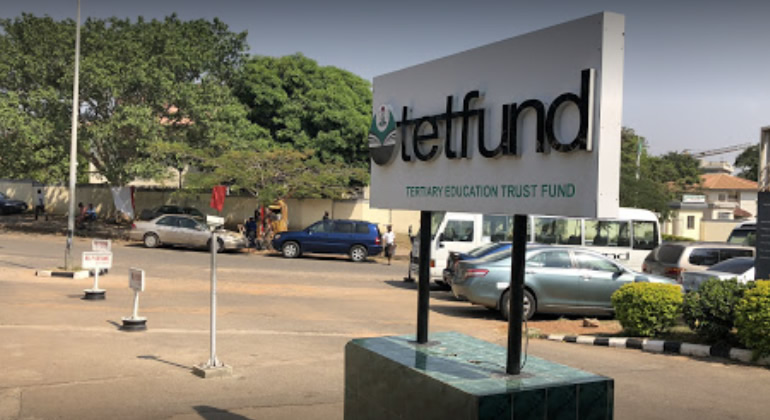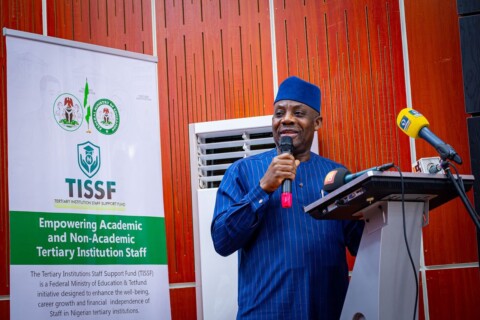The Tertiary Education Trust Fund (TETFund) has reiterated the urgent need for Nigerian tertiary institutions to fully integrate technology into their teaching, research, and administrative processes, warning that billions of naira in public funds already invested in ICT infrastructure could be wasted if not properly utilised.
Speaking at a two-day workshop in Abuja on the use of Blackboard/TERAS digital platforms in beneficiary institutions, Executive Secretary of TETFund, Sonny Echono, expressed concern over the low adoption rate of digital tools, despite the agency’s early investment in platforms like the Tertiary Education, Research, Applications and Services (TERAS). He noted that many universities, polytechnics, and colleges of education continue to lag behind in digital transformation.
The workshop brought together registrars, bursars, directors of academic planning and ICT, as well as thesis repository managers from across TETFund-supported institutions.
Echono stressed that with Nigeria’s ballooning population and a limited number of physical classrooms, technology remains the only viable route to expanding access to quality education. He pointed out that students should now be able to access learning content and skills using just mobile devices, stating, “There’s no alternative to technology if we want to prepare our youth for future opportunities.”
He criticised institutions still relying on manual submissions, despite clear instructions for e-submissions to TETFund, and described many schools’ websites as “embarrassingly outdated” — a weakness in an increasingly digital world.
Highlighting past successes, Echono referenced the COVID-19 lockdown period when TETFund collaborated with states and broadcasters to deliver curriculum-based lessons. He said the result was one of Nigeria’s best WASSCE performances, showcasing technology’s power to transform education delivery.
However, he expressed concern that Nigeria now ranks 189th globally and 25th in Africa in education competitiveness, trailing countries like Rwanda and Mauritius that have effectively harnessed digital tools in education. He warned that failure to utilise already installed ICT infrastructure amounts to national waste.
Calling on heads of institutions to drive the adoption of platforms like TERAS, Echono noted that more than half of future TETFund education investments would be channelled into ICT rather than physical infrastructure.
He further linked Nigeria’s underdevelopment to its slow digital adaptation across sectors such as oil, agriculture, and manufacturing, contrasting it with China’s deliberate technological investments. “If we choose to act, we can achieve the same progress. It all starts with education, because knowledge is the foundation of every nation,” he said.
Echono urged tertiary institutions to update their websites with relevant data and ensure full onboarding of both students and staff onto the TERAS platform.
TETFund’s Director of ICT, Joseph Odo, also addressed participants, explaining that the workshop aimed to improve familiarity with TETFund’s digital tools and encourage collaboration among institutions. He emphasised that similar sessions would be held across all six geopolitical zones to strengthen the use of these platforms, which support data aggregation, teaching innovation, and better learning outcomes.





